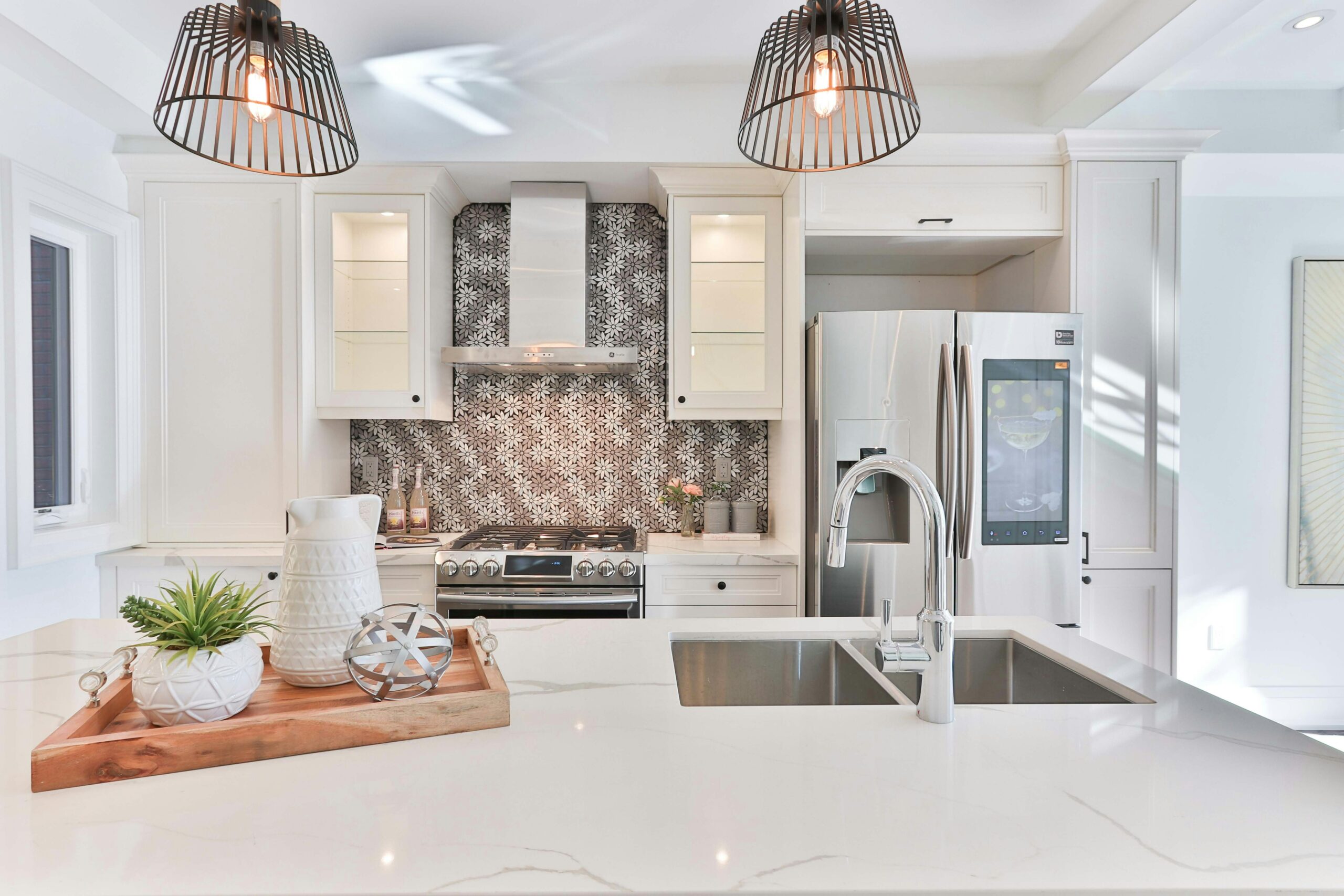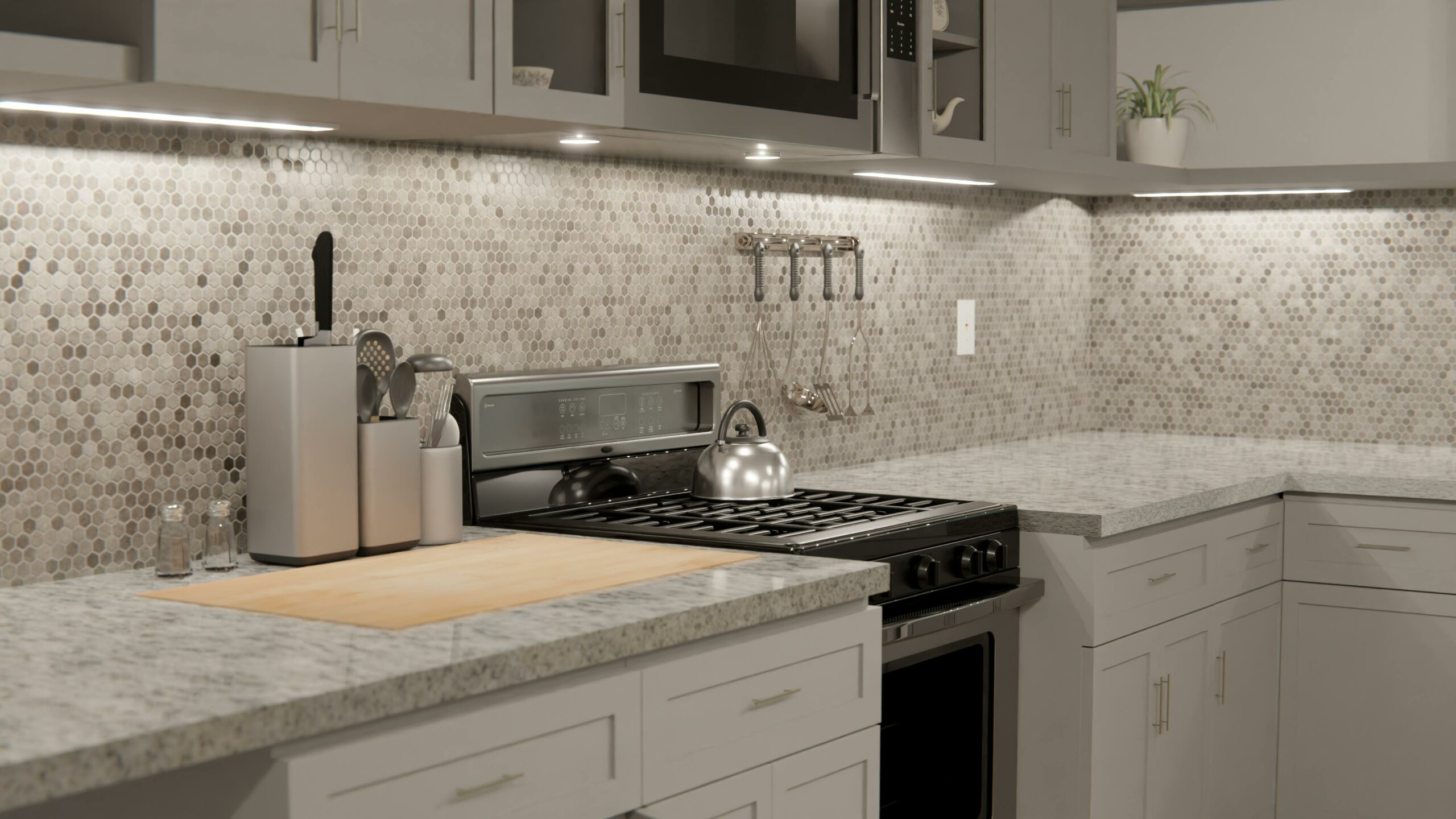When it comes to the exciting but potentially overwhelming task of choosing material for your kitchen or bathroom countertops, the decision often comes down to “quartz vs granite countertops.” Both materials have their advocates and serve as sophisticated and durable choices within home renovations. However, both quartz and granite also have their unique features, pros and cons, affecting their aesthetics, durability, maintenance requirements, cost, and environmental impact.
In this comprehensive guide, we will explore the key differences between quartz and granite countertops to aid you in making an informed decision. Whether deciding based on the countertop’s aesthetic appeal, its resilience under pressure, or its maintenance or cost factor, these insights will give you a clear perspective on what to expect.
Similarly, we will dive into the ecological aspect to deliver a verdict on which of the two, quartz or granite, stands as the more eco-friendly option. The proper cleaning and care for both materials will also be addressed to ensure a long life for your selected countertop. Lastly, be it a kitchen or bathroom renovation project, we will conclude with advice on how to choose between quartz and granite countertop based on your individual needs and preference.
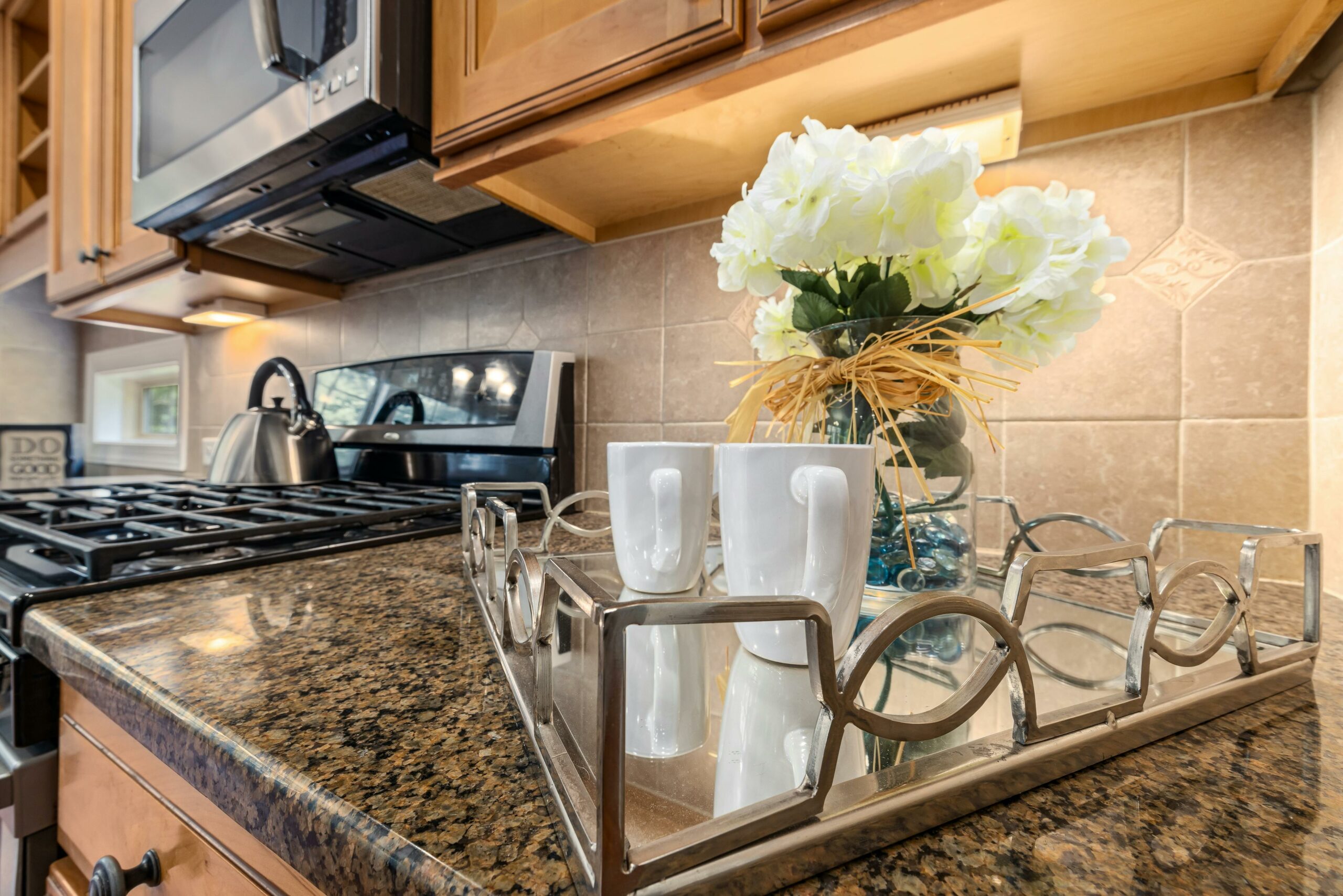
Understanding the Difference between Quartz and Granite Countertops
When it comes to choosing the perfect countertop material for your kitchen or bathroom, two popular options that often come up are quartz and granite. While both are excellent choices, it’s important to understand the differences between them to make an informed decision.
Composition
Quartz countertops are made from a combination of natural quartz stone and resin, resulting in a durable and non-porous surface. On the other hand, granite countertops are entirely natural and composed of different minerals, including quartz, feldspar, and mica.
Appearance
Quartz countertops offer a wide range of color options and can be engineered to mimic the look of natural stone. They have a consistent pattern and can even have veining similar to marble. Granite countertops, on the other hand, have a unique and natural appearance with variations in color, pattern, and veining.
Durability
Both quartz and granite countertops are highly durable and resistant to scratches, heat, and stains. However, quartz is slightly more resistant to chipping and cracking due to its engineered composition. Granite may require occasional sealing to maintain its durability.
Maintenance
Quartz countertops are virtually maintenance-free and require only regular cleaning with mild soap and water. Granite countertops, on the other hand, may require periodic sealing to prevent staining and bacterial growth. They also need to be cleaned regularly using a granite-specific cleaner.
Cost
Quartz countertops tend to be more expensive than granite countertops due to their engineered composition and manufacturing process. However, the cost can vary depending on the brand, color, and thickness chosen. Granite countertops are generally more affordable but can also vary in price depending on the quality and rarity of the stone.
By understanding the differences between quartz and granite countertops, you can make an informed decision based on your preferences, budget, and specific needs for your kitchen or bathroom renovation.
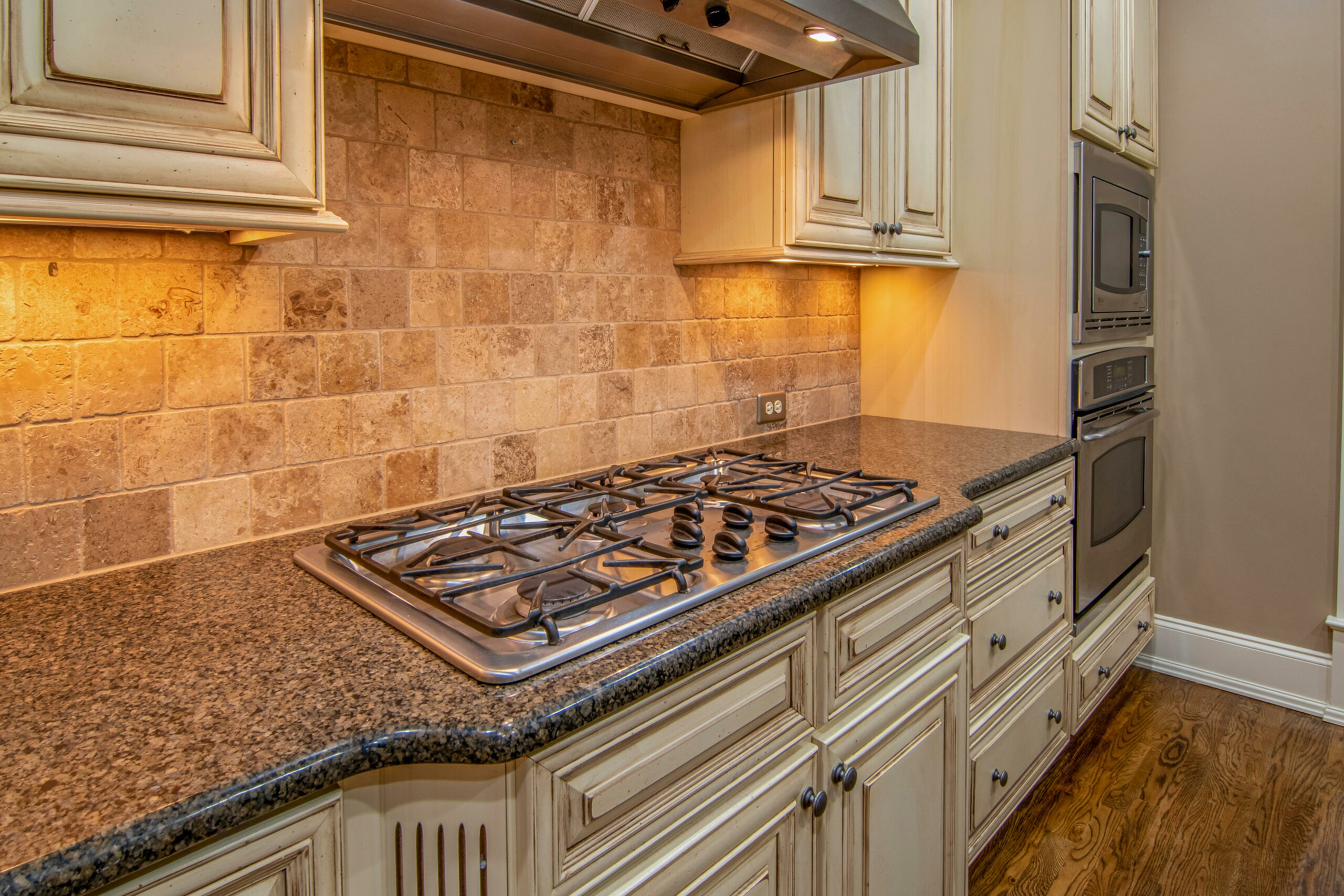
Identifying the Pros and Cons of Quartz Countertops
Quartz countertops have become increasingly popular in recent years due to their durability, low maintenance, and aesthetic appeal. However, like any other material, quartz countertops also have their pros and cons that homeowners should consider before making a decision.
Pros of Quartz Countertops:
-
- Durability: Quartz countertops are known for their exceptional durability. They are resistant to scratches, stains, and heat, making them perfect for busy kitchens.
-
- Low Maintenance: Unlike natural stones like granite, quartz countertops do not require sealing. They are non-porous, which means they are resistant to bacteria and easy to clean with just soap and water.
-
- Wide Range of Colors and Patterns: Quartz countertops offer a wide variety of colors and patterns to choose from, allowing homeowners to find the perfect match for their kitchen or bathroom design.
-
- Consistency: Unlike natural stones, quartz countertops have a consistent appearance throughout the slab. This makes it easier to match different pieces and create a seamless look.
Cons of Quartz Countertops:
-
- Cost: Quartz countertops tend to be more expensive than other countertop materials, including granite. The cost can vary depending on the brand, color, and thickness.
-
- Not Completely Heat Resistant: While quartz countertops are heat resistant, they are not completely heat-proof. Placing hot pans directly on the surface can cause damage, so it’s important to use trivets or hot pads.
-
- Not Completely Scratch Resistant: Although quartz countertops are highly durable, they can still be scratched by sharp objects or knives. It’s recommended to use cutting boards to protect the surface.
-
- Not Suitable for Outdoor Use: Quartz countertops are not recommended for outdoor applications as prolonged exposure to sunlight can cause fading and discoloration.
When considering quartz countertops for your kitchen or bathroom renovation, it’s important to weigh the pros and cons to make an informed decision. Ultimately, the choice between quartz and other countertop materials will depend on your budget, lifestyle, and personal preferences.
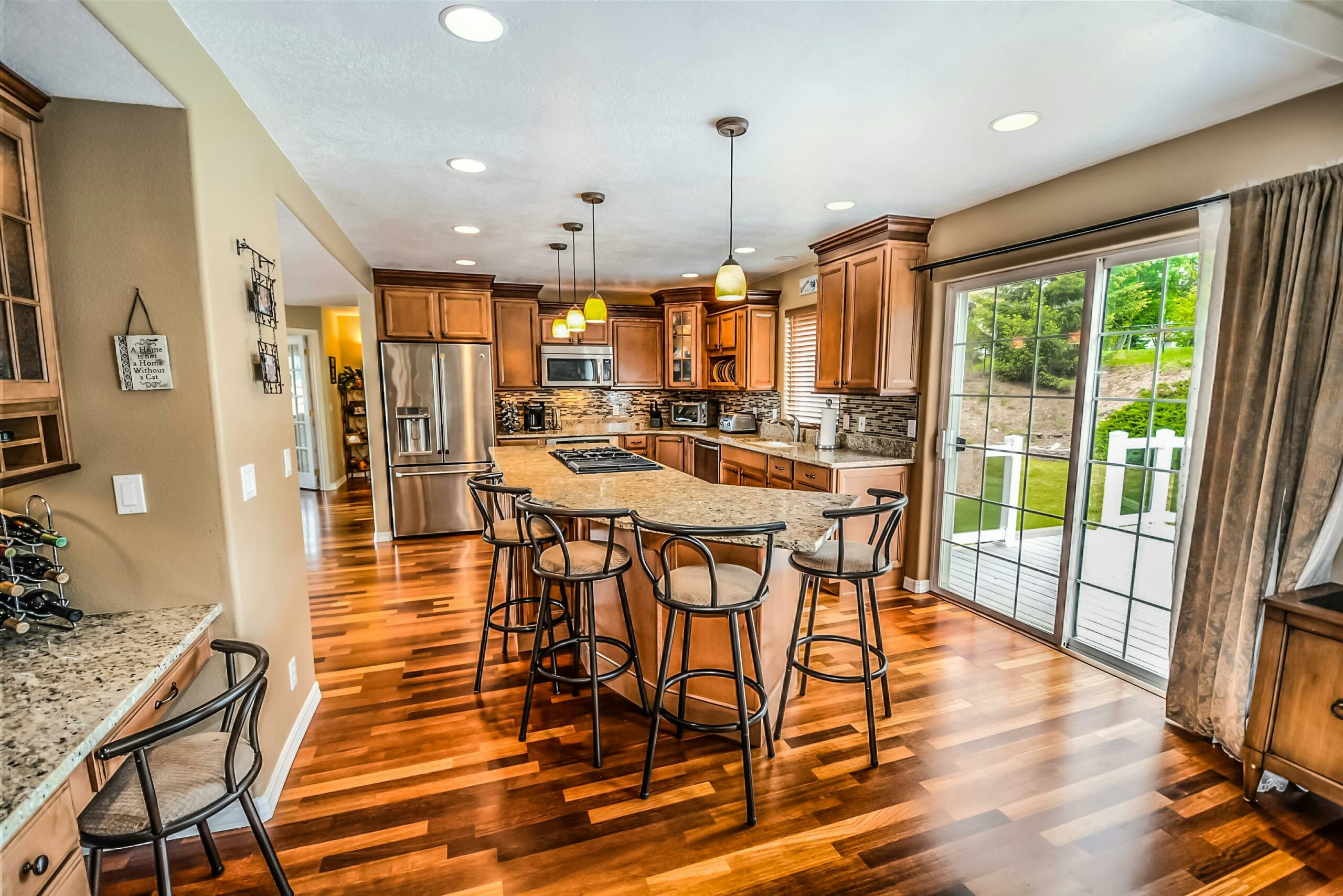
Exploring the Advantages and Disadvantages of Granite Countertops
Granite countertops are a popular choice for many homeowners due to their durability and natural beauty. However, like any other material, granite countertops also have their advantages and disadvantages. In this section, we will explore the pros and cons of granite countertops to help you make an informed decision for your home.
Advantages of Granite Countertops
-
- Durability: One of the biggest advantages of granite countertops is their durability. Granite is a natural stone that is heat-resistant, scratch-resistant, and stain-resistant. It can withstand high temperatures, making it an ideal choice for kitchen countertops.
- Natural Beauty: Granite countertops offer a unique and elegant look to any space. Each slab of granite has its own distinct patterns and colors, adding a touch of luxury to your kitchen or bathroom.
- Longevity: Granite countertops are known for their longevity. With proper care and maintenance, they can last for decades without losing their beauty or functionality.
- Increased Home Value: Installing granite countertops can significantly increase the value of your home. Potential buyers often consider granite countertops as a desirable feature, which can help you sell your home faster and at a higher price.
Disadvantages of Granite Countertops
-
- Cost: One of the main disadvantages of granite countertops is their cost. Granite is a natural stone and can be quite expensive compared to other countertop materials.
- Sealing and Maintenance: Granite countertops require regular sealing to protect them from stains and spills. Additionally, they need to be cleaned and maintained properly to prevent any damage or discoloration.
- Weight: Granite countertops are heavy, which means that proper support and installation are necessary. This can increase the overall cost of the countertop installation.
- Limited Color Options: While granite countertops offer a wide range of colors and patterns, the options may be limited compared to other materials like quartz.
When considering granite countertops for your home, it is essential to weigh the advantages and disadvantages. While they offer durability and natural beauty, they may come with a higher price tag and require regular maintenance. Ultimately, the decision should be based on your personal preferences, budget, and lifestyle.
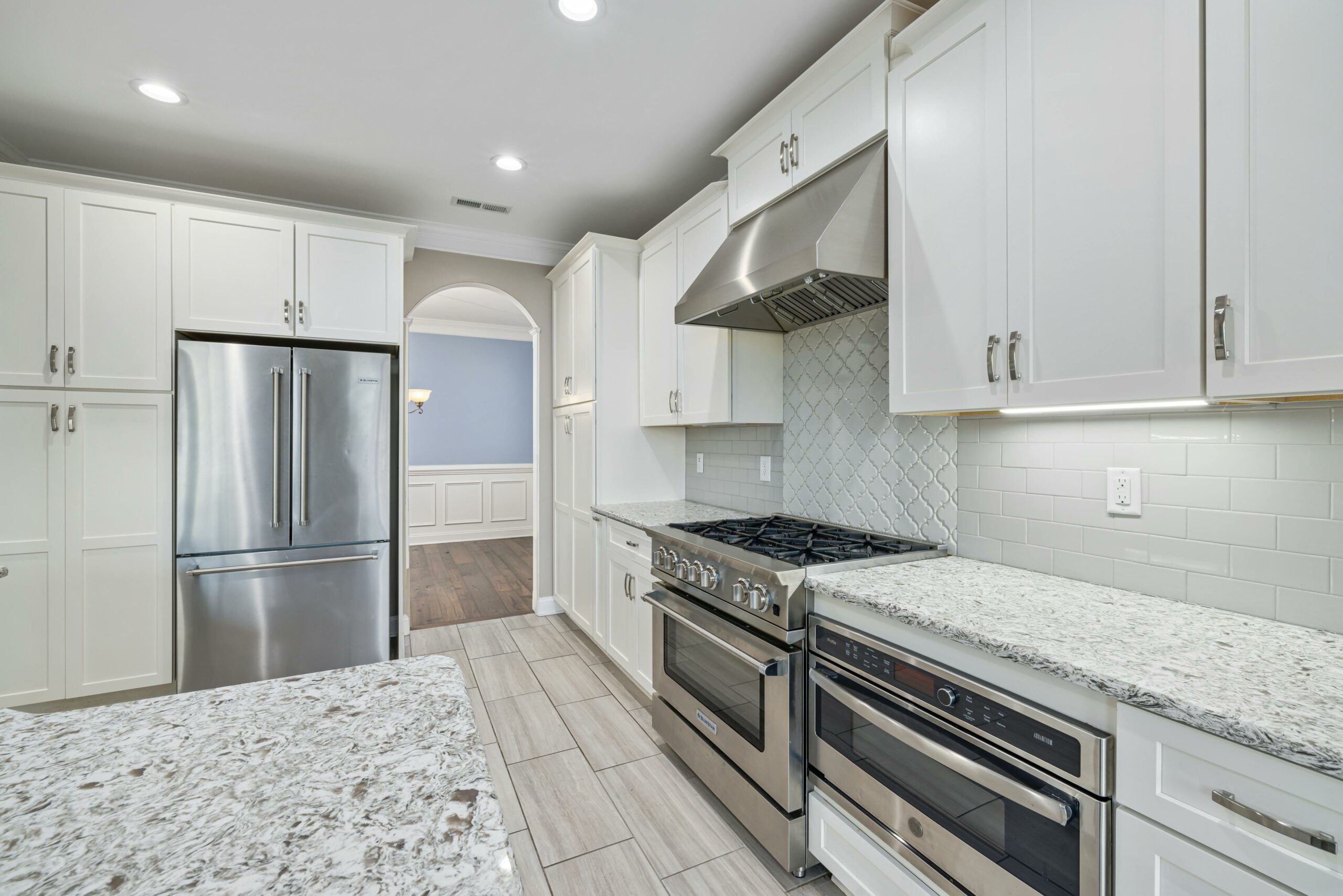
Quartz vs Granite: Aesthetics, Durability, and Maintenance
When it comes to choosing the perfect countertop material for your home, quartz and granite are two popular options that often come to mind. Both offer a beautiful and durable surface, but they have their own unique characteristics that set them apart. In this section, we will explore the aesthetics, durability, and maintenance of quartz and granite countertops to help you make an informed decision.
Aesthetics
Quartz countertops are engineered stone surfaces made from a combination of natural quartz crystals and resins. This allows for a wide range of color options and patterns to choose from. Whether you prefer a solid color or a more intricate design, quartz can provide a sleek and modern look to your kitchen or bathroom.
On the other hand, granite countertops are natural stone surfaces that offer a timeless and elegant appearance. Each slab of granite is unique, with its own patterns and variations in color. This natural beauty can add warmth and character to any space.
Durability
When it comes to durability, both quartz and granite countertops are known for their strength and resistance to scratches and heat. However, granite is a slightly harder material, making it more resistant to chipping and cracking. Quartz, on the other hand, is less porous than granite, making it more resistant to staining and bacteria growth.
It’s important to note that while quartz is highly durable, it can be damaged by excessive heat. Placing hot pots or pans directly on the surface can cause thermal shock and potentially lead to cracks or discoloration. It’s always recommended to use trivets or hot pads to protect your quartz countertops.
Maintenance
When it comes to maintenance, both quartz and granite countertops are relatively easy to care for. Quartz countertops are non-porous, which means they don’t require sealing and are resistant to stains. Regular cleaning with mild soap and water is usually sufficient to keep them looking their best.
Granite countertops, on the other hand, are porous and require periodic sealing to prevent staining. While sealing is a simple process, it’s important to follow the manufacturer’s instructions and reseal as recommended. Additionally, it’s best to avoid using harsh chemicals or abrasive cleaners on granite to prevent damage to the surface.
In conclusion, both quartz and granite countertops offer their own unique benefits in terms of aesthetics, durability, and maintenance. Quartz provides a wide range of design options and is highly resistant to stains, while granite offers a natural beauty and is slightly more durable. Ultimately, the choice between quartz and granite will depend on your personal preferences and needs.
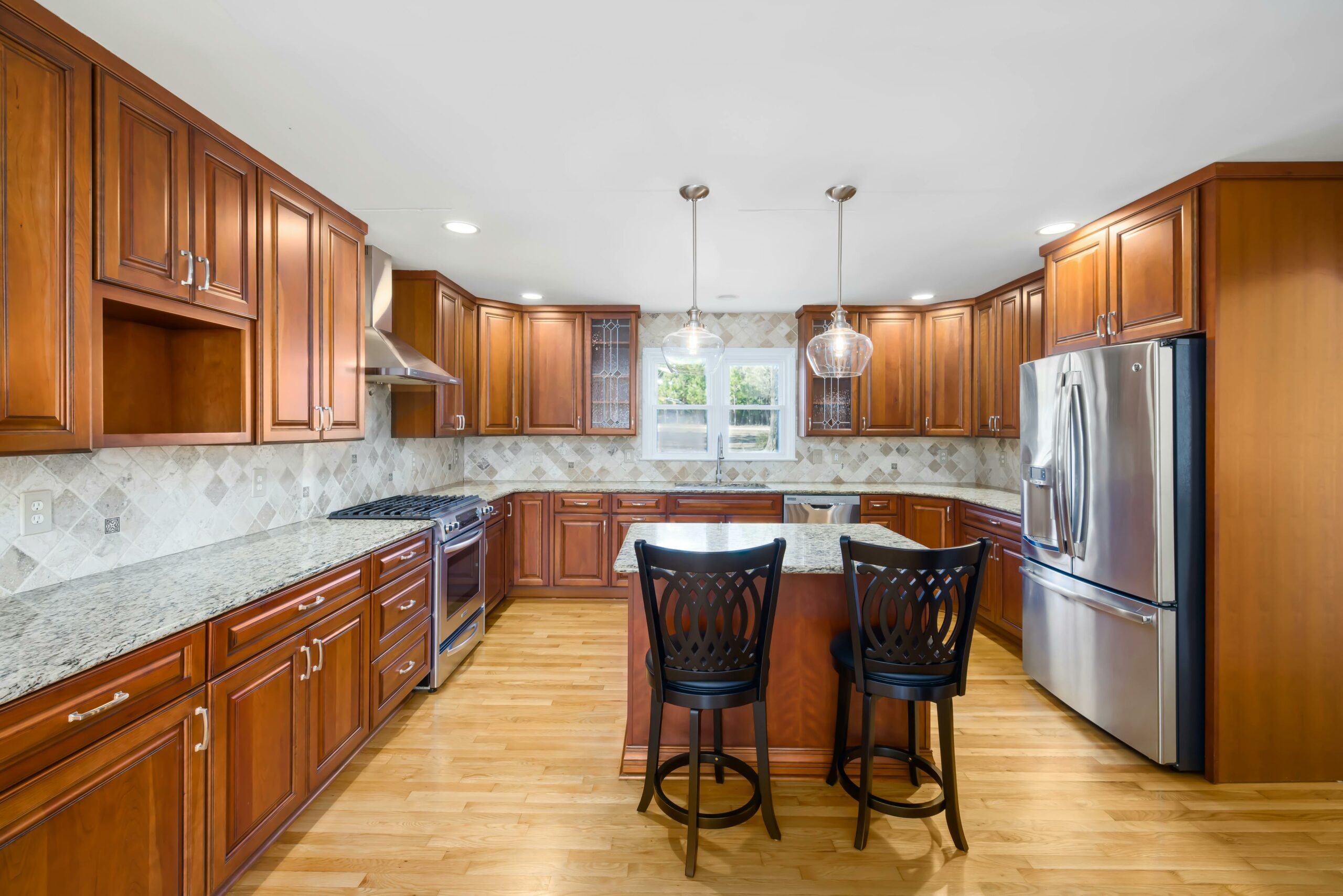
Cost Comparison: Quartz Countertops vs Granite Countertops
When it comes to choosing the right countertop material for your home, two popular options often come to mind: quartz and granite. While both offer their own set of advantages and disadvantages, one factor that plays a significant role in the decision-making process is the cost.
Quartz Countertops
Quartz countertops are engineered stone surfaces made from a combination of natural quartz and resins. They are known for their durability, low maintenance, and wide range of color options. However, these benefits often come at a higher price compared to granite.
-
- Cost per square foot: On average, quartz countertops can range from $50 to $150 per square foot, depending on the quality and brand.
-
- Installation cost: The installation cost for quartz countertops can vary, but it typically falls between $40 to $80 per square foot.
-
- Lifetime cost: While quartz countertops may have a higher upfront cost, they require minimal maintenance and are highly durable, making them a long-term investment.
Granite Countertops
Granite countertops are natural stone surfaces known for their unique patterns and durability. They add a touch of elegance and sophistication to any kitchen or bathroom. When it comes to cost, granite countertops can be a more budget-friendly option compared to quartz.
-
- Cost per square foot: On average, granite countertops can range from $40 to $100 per square foot, depending on factors such as color, pattern, and thickness.
-
- Installation cost: The installation cost for granite countertops can vary, but it typically falls between $30 to $80 per square foot.
-
- Lifetime cost: While granite countertops may require periodic sealing and maintenance, they can still provide a durable and long-lasting surface at a more affordable price point.
Ultimately, the cost comparison between quartz and granite countertops will depend on various factors, including the size of the project, the specific brand and quality chosen, and any additional customization or features desired. It’s important to consider your budget and priorities when making a decision.

Quartz versus Granite: Which is More Eco-Friendly
When it comes to choosing between quartz and granite countertops, one important factor to consider is their impact on the environment. Both materials have their own set of advantages and disadvantages in terms of eco-friendliness.
Quartz Countertops
Quartz countertops are engineered stone surfaces made from a combination of natural quartz crystals and resins. They are known for their durability, low maintenance, and wide range of colors and patterns. But how eco-friendly are they?
One of the main eco-friendly aspects of quartz countertops is that they are made from abundant and readily available quartz, which is a naturally occurring mineral. This means that the extraction of quartz does not deplete limited resources or harm the environment significantly.
Additionally, the manufacturing process of quartz countertops involves recycling and reusing materials. The quartz crystals used in the production are often byproducts of other mining operations, reducing waste. The resins used to bind the quartz together are also often made from recycled materials.
Furthermore, quartz countertops are non-porous, which means they do not require sealants or harsh chemicals for maintenance. This makes them a more environmentally friendly option compared to other types of countertops that may require regular sealing and cleaning with chemical-based products.
Granite Countertops
Granite countertops are natural stone surfaces that are mined from quarries and cut into slabs for use in kitchens and bathrooms. They are known for their beauty, durability, and unique patterns. But how do they fare in terms of eco-friendliness?
The extraction of granite involves blasting and digging deep into the earth, which can have a significant impact on the environment. The mining process can lead to deforestation, habitat destruction, and soil erosion. Additionally, the transportation of granite from quarries to fabrication facilities and then to the final destination can contribute to carbon emissions.
However, it’s worth noting that granite is a natural material that does not require any chemical processing or additives during its production. It is also a long-lasting material, which means it has a lower environmental impact in terms of replacement and waste generation compared to materials that need frequent replacement.
To mitigate the environmental impact of granite countertops, some manufacturers are implementing sustainable practices. These include using water recycling systems, reusing waste materials, and supporting reforestation efforts.
The Verdict
When it comes to eco-friendliness, quartz countertops have a slight edge over granite countertops. The use of recycled materials, the absence of harsh chemicals, and the lower impact on natural resources make quartz a more environmentally friendly choice.
However, it’s important to consider other factors as well, such as aesthetics, durability, maintenance, and cost, when making a decision between quartz and granite countertops. Ultimately, the choice depends on your personal preferences and priorities.
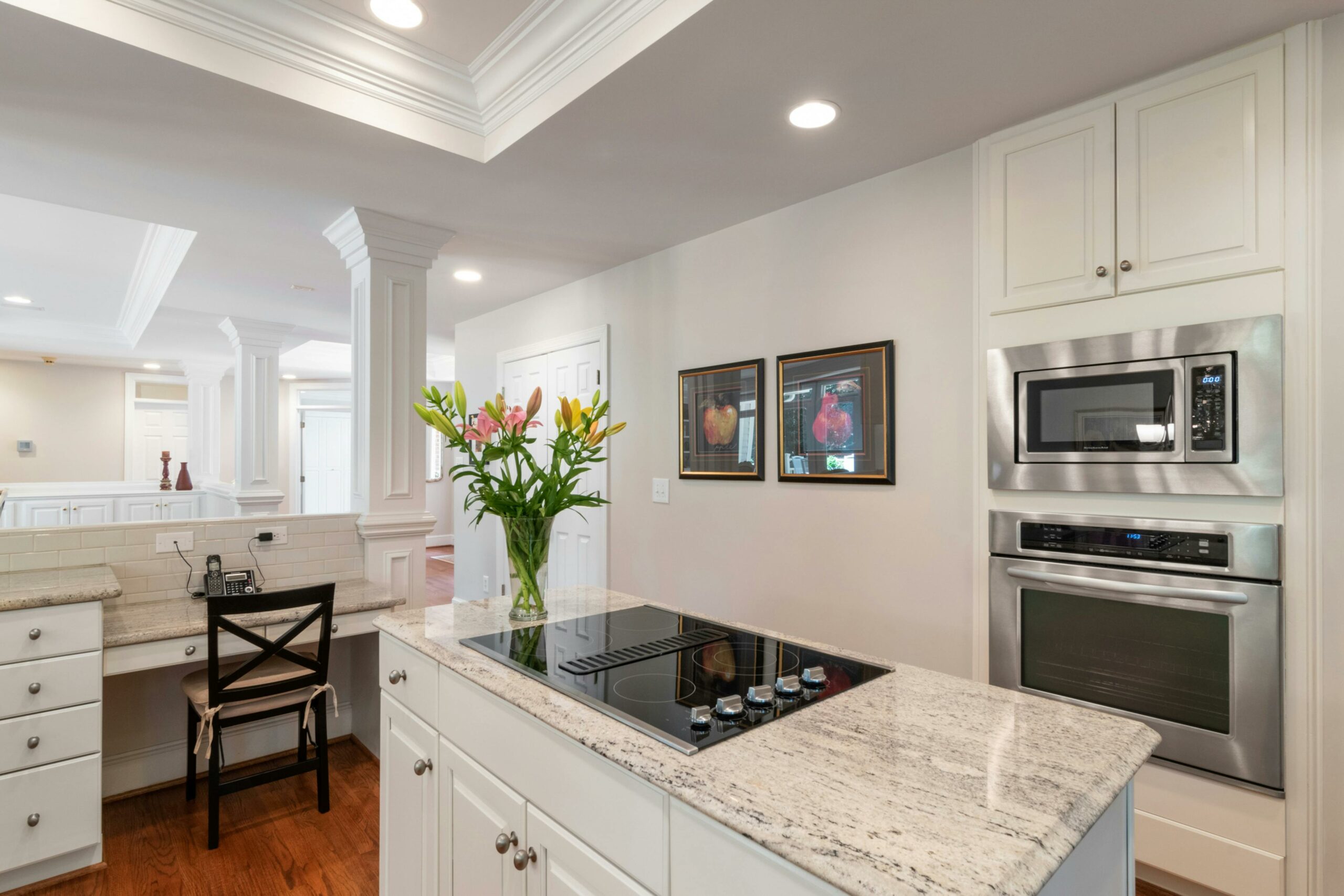
Cleaning and Caring for Quartz and Granite Countertops
When it comes to cleaning and caring for your quartz and granite countertops, there are a few important things to keep in mind. Proper maintenance will not only keep your countertops looking beautiful but also extend their lifespan.
General Cleaning Tips
-
- Start by wiping down the countertops with a soft cloth or sponge and warm, soapy water. Avoid using abrasive cleaners or scrub brushes, as they can damage the surface.
-
- For tougher stains or dried-on food, use a non-abrasive cleaner specifically designed for quartz or granite countertops. Follow the manufacturer’s instructions for best results.
-
- Always dry the countertops thoroughly after cleaning to prevent water spots and streaks.
-
- Avoid placing hot pots, pans, or dishes directly on the countertops. Use trivets or hot pads to protect the surface from heat damage.
-
- Be cautious with acidic substances like lemon juice, vinegar, or harsh chemicals. These can etch the surface of both quartz and granite countertops.
Specific Care for Quartz Countertops
-
- Quartz countertops are highly durable and resistant to stains, but it’s still important to clean up spills promptly.
-
- Use a mild detergent or a quartz cleaner to remove any residue or stains.
-
- Avoid using abrasive scrubbers or cleaners with bleach, as they can damage the quartz surface.
Specific Care for Granite Countertops
-
- Granite countertops are naturally porous and require sealing to prevent stains. Check with the manufacturer or installer for their recommended sealing schedule.
-
- Wipe up spills immediately to prevent them from seeping into the stone and causing stains.
-
- Use a granite cleaner or a mixture of water and mild dish soap to clean the surface.
-
- Consider resealing your granite countertops every 1-2 years to maintain their beauty and protect against stains.
By following these cleaning and care tips, you can keep your quartz and granite countertops looking their best for years to come. Remember to always refer to the manufacturer’s guidelines for specific cleaning instructions and recommendations.
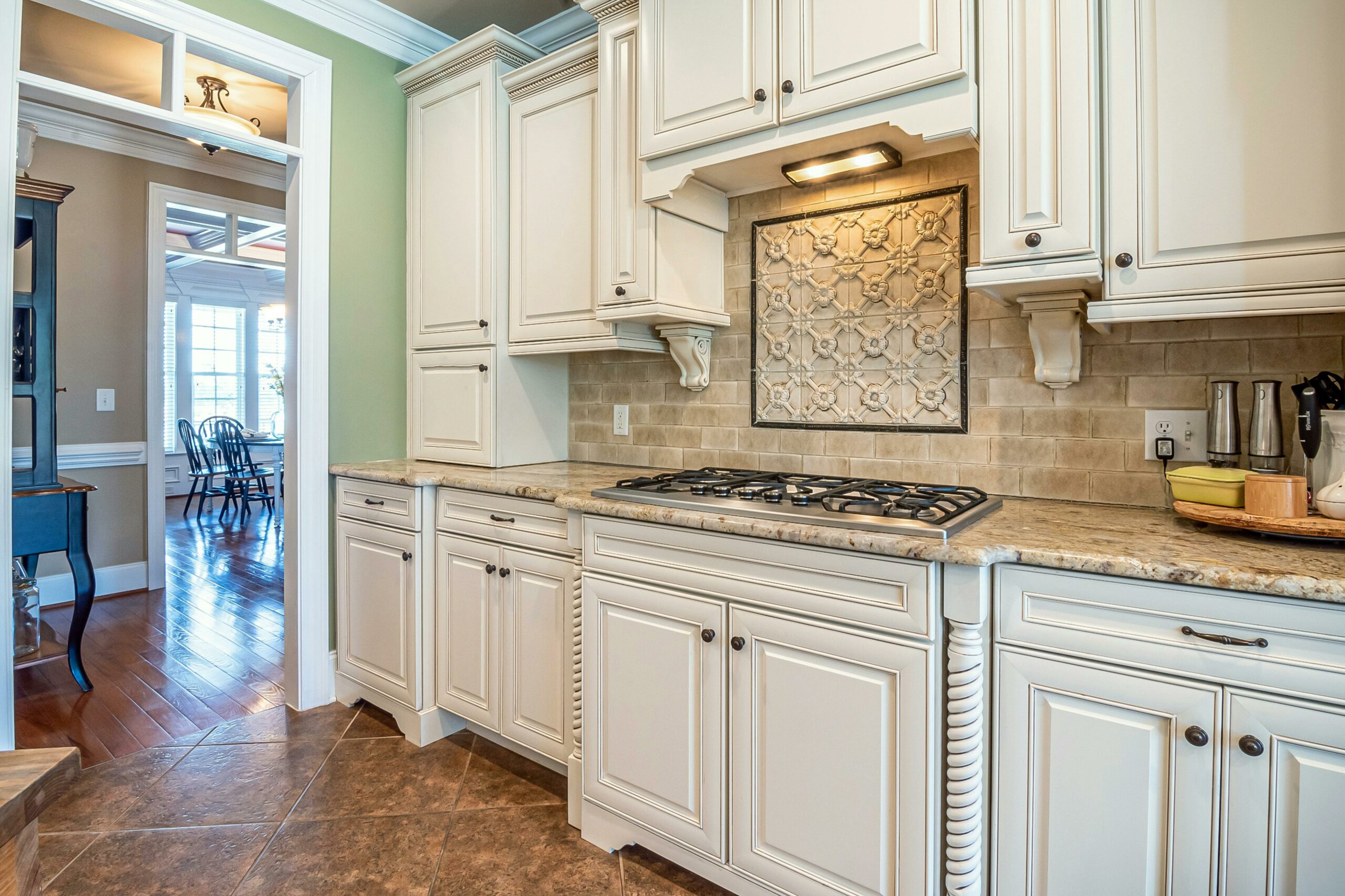
Considering Quartz and Granite Countertops for Kitchen Renovations
When it comes to kitchen renovations, one of the most important decisions you’ll have to make is choosing the right countertop material. Two popular options that homeowners often consider are quartz and granite countertops. Both materials offer unique benefits and considerations, making it essential to weigh your options carefully. Let’s explore the factors you should consider when deciding between quartz and granite for your kitchen countertops.
1. Aesthetics
Quartz countertops are manufactured using a combination of natural quartz stone and resin. This allows for a wide range of colors, patterns, and designs to choose from. On the other hand, granite countertops are made from natural stone and offer a unique and elegant appearance. Granite’s natural variations in color and pattern make each countertop truly one-of-a-kind.
2. Durability
Both quartz and granite countertops are known for their durability. Quartz countertops are engineered to be highly resistant to scratches, stains, and heat. They are also non-porous, making them less likely to harbor bacteria or mold. Granite countertops, while durable, require regular sealing to maintain their resistance to stains and bacteria. They are also more prone to chipping and cracking compared to quartz.
3. Maintenance
When it comes to maintenance, quartz countertops have the upper hand. They are easy to clean and require minimal upkeep. A simple wipe with a mild detergent and water is usually sufficient. Granite countertops, on the other hand, require regular sealing to prevent stains and bacteria buildup. They also need to be cleaned with non-abrasive cleaners to avoid scratching the surface.
4. Cost
Cost is often a significant factor in kitchen renovations. Quartz countertops tend to be more expensive upfront compared to granite. However, the long-term cost of quartz may be lower due to its durability and low maintenance requirements. Granite countertops are generally more affordable initially but may require more maintenance and repairs over time.
5. Environmental Impact
For those concerned about the environment, quartz countertops may be a more eco-friendly choice. Quartz is an abundant material, and the manufacturing process can incorporate recycled materials. Granite, while natural, requires mining and transportation, which can have an impact on the environment.
Considering all these factors, it’s essential to evaluate your priorities and budget when choosing between quartz and granite countertops for your kitchen renovations. Both materials offer unique benefits, and the decision ultimately comes down to personal preference and specific requirements. Consult with a professional to ensure you make an informed choice that suits your style and needs.
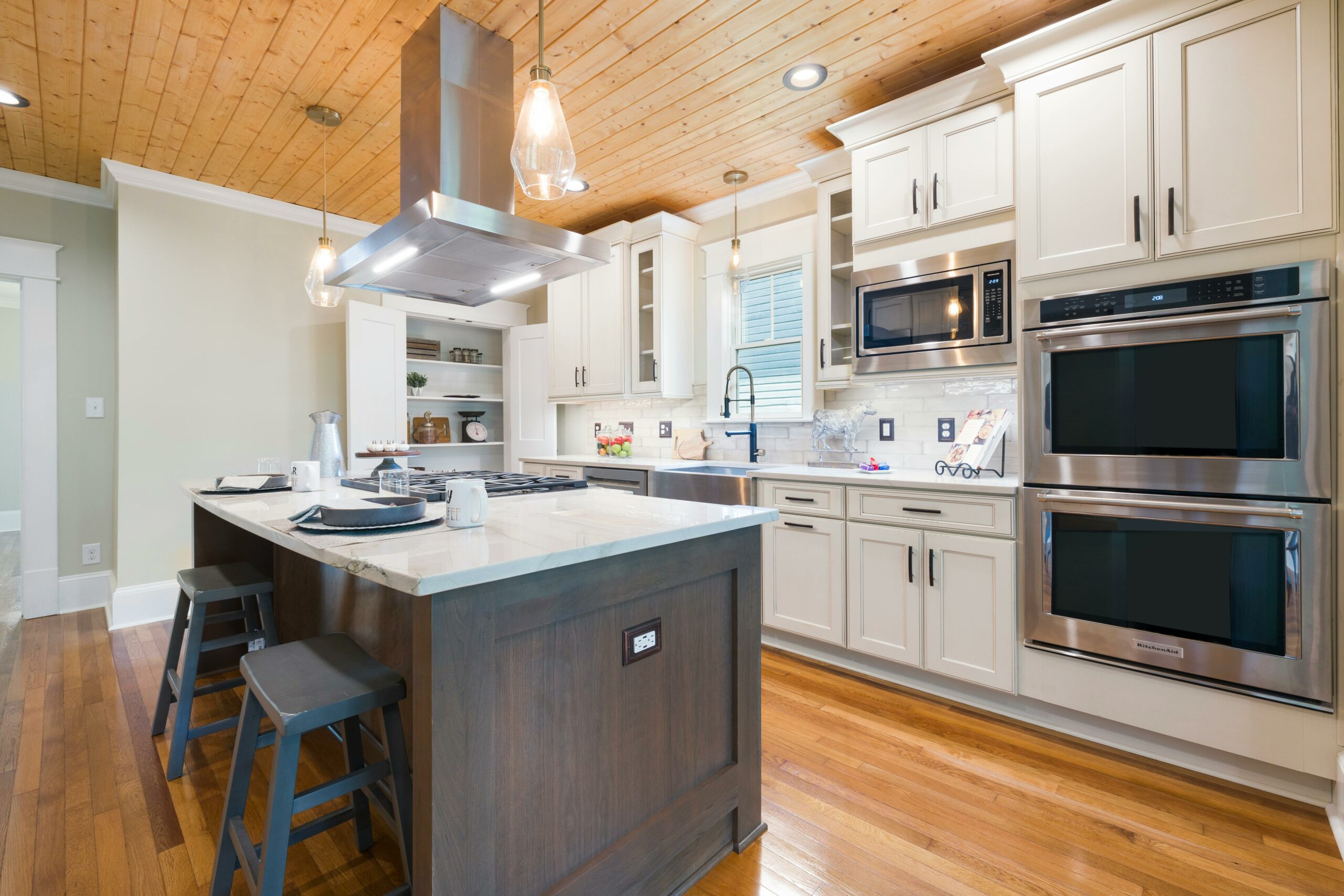
Verdict: Quartz or Granite for Bathroom Countertops
When it comes to choosing between quartz and granite for bathroom countertops, there are a few factors to consider. Both materials have their own advantages and disadvantages, so it ultimately depends on your personal preferences and needs.
Aesthetics
Quartz countertops offer a wide range of colors and patterns, as they are engineered using a combination of natural quartz stone and resin. This allows for more customization options and the ability to achieve a consistent look throughout your bathroom. On the other hand, granite countertops have a natural beauty and unique veining patterns that can add a touch of elegance to any bathroom.
Durability and Maintenance
Quartz countertops are highly durable and resistant to stains, scratches, and heat. They are non-porous, which means they do not require sealing and are less likely to harbor bacteria or mold. Granite countertops, while also durable, are porous and require regular sealing to prevent staining. They may also be more prone to chipping or cracking if not properly maintained.
Cost
Quartz countertops tend to be more expensive than granite countertops. The price of quartz can vary depending on the brand, color, and thickness. Granite countertops, on the other hand, can be more affordable, especially if you choose a more common or readily available color.
Final Thoughts
Ultimately, the decision between quartz and granite for bathroom countertops comes down to personal preference, budget, and the specific needs of your bathroom. If you value customization, durability, and low maintenance, quartz may be the better option for you. However, if you appreciate the natural beauty of granite and are willing to invest in regular maintenance, it can be a stunning choice for your bathroom.
Consider consulting with a professional countertop installer or designer to help you make the best decision for your bathroom renovation project.
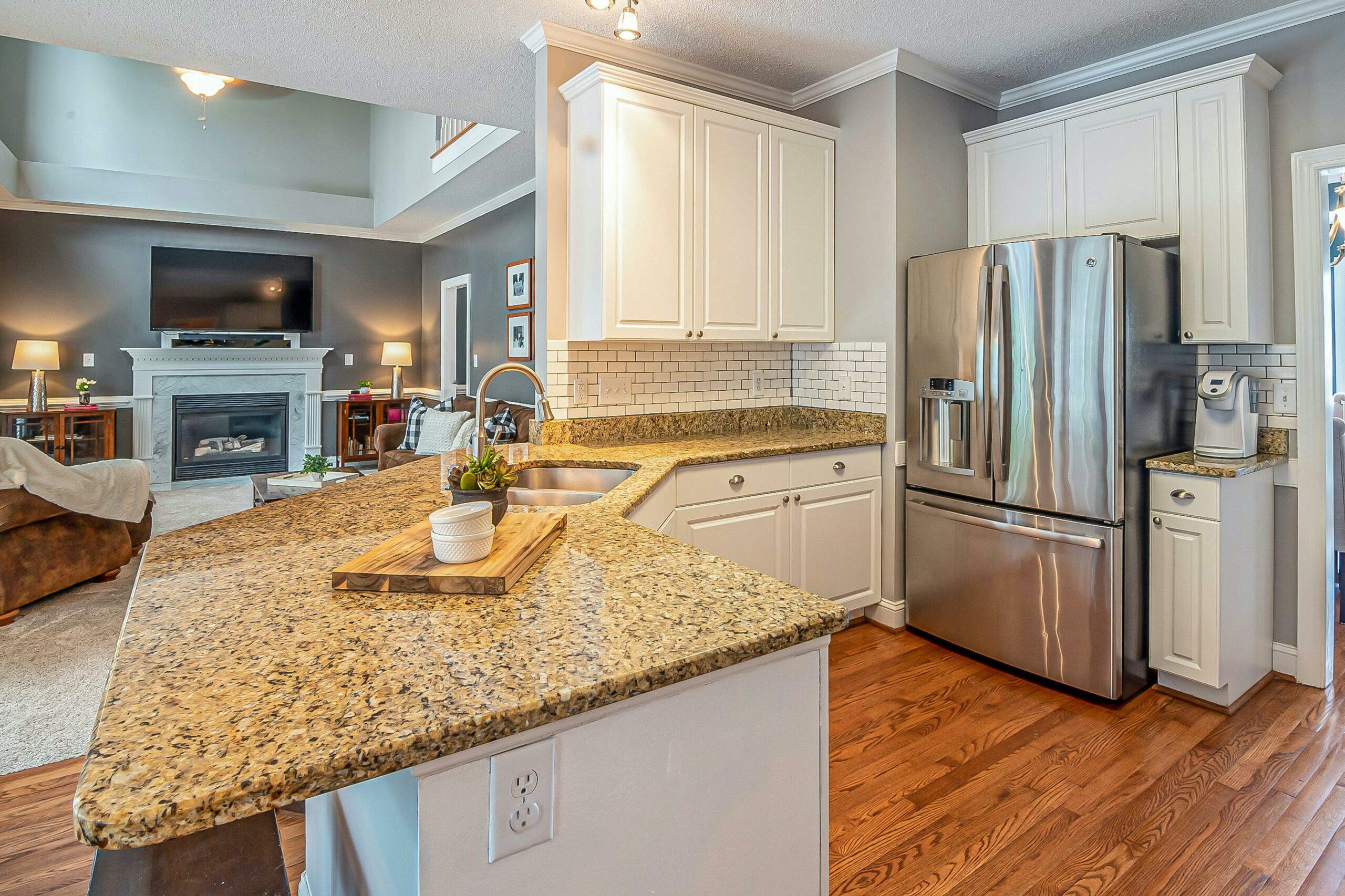
How to Choose Between Quartz and Granite Countertops for Your Home
Choosing between quartz and granite countertops can be a tough decision when it comes to home renovations. Both materials offer unique qualities and benefits that can enhance the aesthetics and functionality of your kitchen or bathroom. To make an informed decision, it’s important to consider several factors and weigh the pros and cons of each option.
1. Assess Your Needs and Lifestyle
Before making a decision, it’s essential to assess your needs and lifestyle. Consider how you use your kitchen or bathroom and what features are important to you. Are you looking for a low-maintenance option? Do you prefer a countertop that is resistant to stains and scratches? Understanding your specific requirements will help you narrow down your choices.
2. Consider the Aesthetics
Quartz and granite countertops offer different aesthetic options. Quartz countertops are engineered and available in a wide range of colors and patterns, allowing for more customization. On the other hand, granite countertops are natural stone and offer unique veining and patterns that can add a touch of elegance to your space. Consider your overall design style and choose a material that complements your vision.
3. Evaluate Durability and Maintenance
Both quartz and granite countertops are durable and long-lasting. Quartz is non-porous, making it resistant to stains and bacteria growth. It also requires minimal maintenance, as it does not need to be sealed. Granite, on the other hand, is porous and requires periodic sealing to prevent stains. However, with proper care and maintenance, both materials can withstand daily use and maintain their beauty for years to come.
4. Compare Costs
Cost is an important factor to consider when choosing between quartz and granite countertops. Quartz countertops tend to be more expensive upfront due to their manufacturing process. However, they require less maintenance and are less prone to damage, potentially saving you money in the long run. Granite countertops are generally more affordable but may require additional costs for sealing and maintenance.
5. Environmental Considerations
If eco-friendliness is a priority for you, it’s important to consider the environmental impact of both quartz and granite countertops. Quartz countertops are considered more environmentally friendly as they are engineered using recycled materials. Granite countertops, although natural, require quarrying and transportation, which can have a higher carbon footprint. Consider your sustainability goals and choose a material that aligns with your values.
By considering these factors and weighing the pros and cons of quartz and granite countertops, you can make an informed decision that suits your needs and preferences. Whether you prioritize aesthetics, durability, cost, or sustainability, both materials offer unique benefits that can enhance the beauty and functionality of your home.

